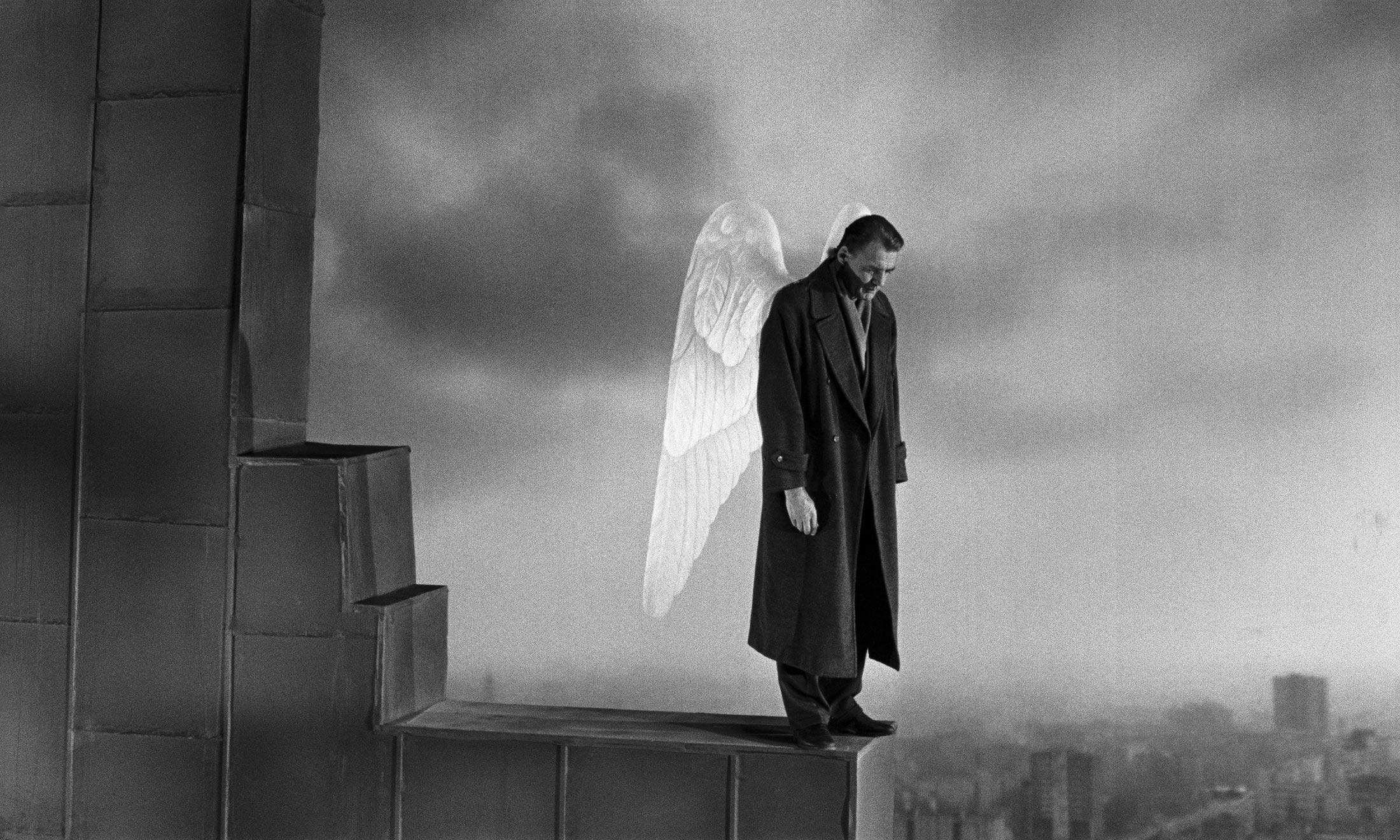If, in 1987, you had never been to Berlin, Wim Wenders’ melancholy romance Wings of Desire was enough to make you fall in love with it, in all its tattered, muted-silver splendor. Berlin was, at the time, a city still divided by a wall, and there were ragged, muddy fields where, years later, modern office buildings and shopping plazas would spring up. But it was also, in Wenders’ vision, a place where angels roamed. Bruno Ganz, with his great, bruised-boxer face, plays Damiel, an angel who watches people from various perches high above the city, including the golden-tipped Victory Column and the broken-but-mended Kaiser Wilhelm Memorial Church. As an angel, he can hear the thoughts of the humans below, a cacophony of often-half-formed musings that constitute a kind of dada poetry. Damiel looks in on a circus, and there he sees, and falls in love with, a human who is almost an angel, the trapeze artist Marion (played by the late Solveig Dommartin). He longs to be with her, a dire complication for a winged, nonhuman entity. But Peter Falk, playing a version of himself who is also, it turns out, a former angel, has come to West Berlin to appear in a film. He has advice and encouragement for Damiel, and there’s a happy ending, with Nick Cave presiding. Maybe it would be fun to be an angel for a while, to eavesdrop on citizens of the earth and bear witness to their experience. But nothing, Wenders decides, beats being a human.
- Donald Trump Is TIME's 2024 Person of the Year
- Why We Chose Trump as Person of the Year
- Is Intermittent Fasting Good or Bad for You?
- The 100 Must-Read Books of 2024
- The 20 Best Christmas TV Episodes
- Column: If Optimism Feels Ridiculous Now, Try Hope
- The Future of Climate Action Is Trade Policy
- Merle Bombardieri Is Helping People Make the Baby Decision
